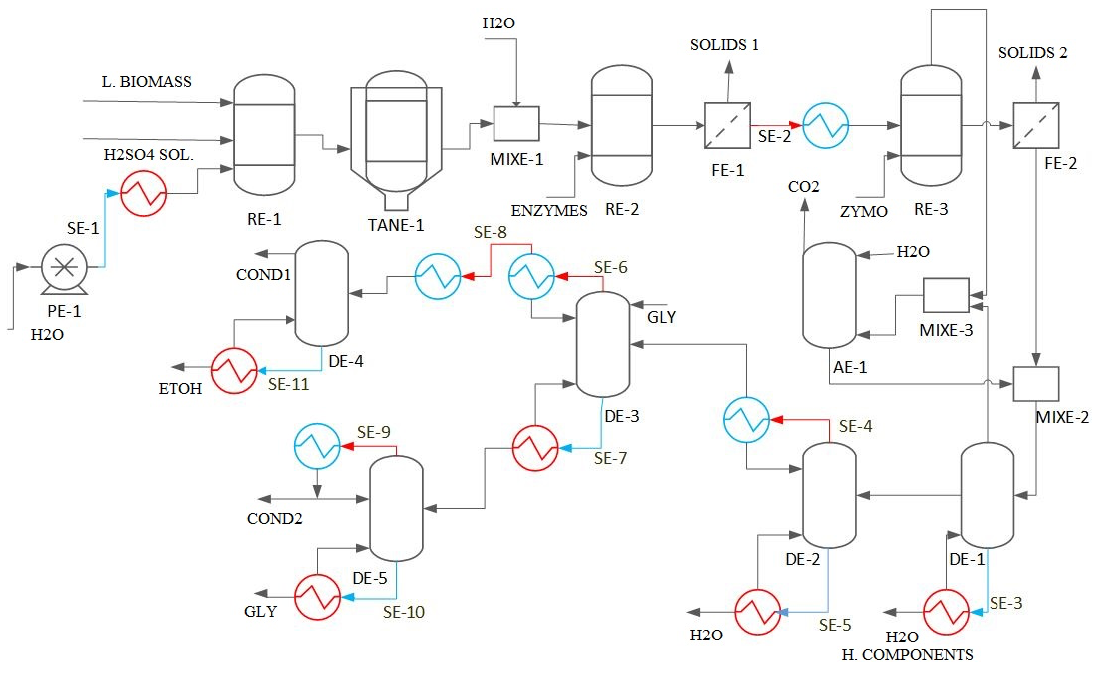 |
|
Biodiesel can be obtained from raw materials with high content of free fatty acids through supercritical processes, which allows obtaining high-quality fuel; nevertheless, such processes imply operating under high pressure and temperature. On the other hand, low-cost lignocellulosic biomass can be converted to bioethanol. Both processes can be integrated through energy flows, expecting reductions on the total energy requirements and environmental impact. Therefore, in this work the integration through energy flows between biodiesel and bioethanol processes is performed, along with its impact in terms of total annual cost and environmental impact. The processes are first integrated as separated entities, then the effect of integrating both processes in a biorefinery scheme is analyzed. According to the results, the heat integration of both processes allows reducing around 15% of the total annual cost associated to heat exchangers. Moreover, the integration even allows reductions in the capital costs for the supercritical process.
Keywords: supercritical biodiesel production, lignocellulosic bioethanol, energy integration, techno-economic analysis.
|
|
 |

